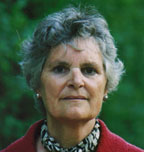
The Seattle Post-Intelligencer, December 4, 2004
Deep Breathing During the Holidays
©2004 Valerie Kreutzer
For many singles—and a lot of couples—the holidays are the pits.
My Unitarian church acknowledges that with a service for those who find the holidays difficult and it seems that half the congregation shows up. Lutherans, if you listen to news from Lake Wobegone, also suffer from a low-grade depression. “And then imagine being Jewish at this time of year,” suggested an acquaintance of yet another persuasion.
Short dark days, jingle bells in every store, and demands to deck the halls with boughs of holly often conspire to create unmerry feelings or nostalgia for the festivities of yesteryear.
I used to be part of the Christmas brigade, decorating the tallest tree in the neighborhood, baking German cookies past midnight, and inviting multitudes for carols on the fourth Sunday of Advent. But then death intruded and life changed, and I’ve been searching for new rituals and metaphors ever since.
For a couple of Christmases the Benedictine monastery on Shaw Island provided shelter and solace. I’d listen to the elderly nuns in their Zen-inspired chapel chanting in Latin for hours on end. But little of their jubilate deo rubbed off on me.
Another Christmas, feeding the homeless seemed a good idea. The men who lined up trembled more than usual in drug- and alcohol-induced stupor, spilling turkey stew on the shaky shuffle to the table. I returned from the scene to my comfy condo crying.
So, last year I packed my bags on Thanksgiving and retreated to Thailand, a Buddhist country. The Lonely Planet, my travel guide, led me to the Northern Insight Meditation Center near Chiang Mai where foreigners are welcome to learn vipassana, a practice of silent walking and sitting meditation.
A young monk in saffron robe showed me the long list of dos and don’ts: no talking, reading or writing; only four hours of sleep; no outside contact; no leaving of the premises without permission. My room had a wooden cot without a mattress, the toilet was non-flushing, and a faucet dispensed cold water into a plastic bucket. This was no Club Med.
The course started with six hours of meditation and soon increased to 12 hours a day. We were up at 4 a.m. to meditate. Breakfast, a rice and vegetable soup, was at 6; a lunch of rice and vegetables followed at 10:30; no food after noon. Meals, taken in silence, were preceded by litanies in which we promised to eat "not for pleasure, but only for the nourishment of our body.”
In the afternoon we reported to the abbot. “How is your practice, Valerie,” he would ask and then nod in friendly detachment when I complained about swollen feet, back pain, and spells of fainting in the morning. Quietly he reminded me to concentrate on my breath. Acknowledge thoughts that come but don’t let them linger, he advised. Keep breathing, in-out, in-out.
And so I sat or walked with my white-robed fellow yogis, searching for the truth within. It’s hard work, and I never got that far. But I experienced moments of pure bliss. Like the morning when I meditated at 4:30 under a starry sky, slowly seeing its light diminish against the dawning of a new day. For once, I was present in the moment.
Back in Seattle, my meditation teacher intones in weekly sessions: “Breathing in I dwell in the present moment; breathing out, I know it is a wonderful moment.”
Try doing that during the day, he encourages. It may work, even as you sit lost in holiday traffic.